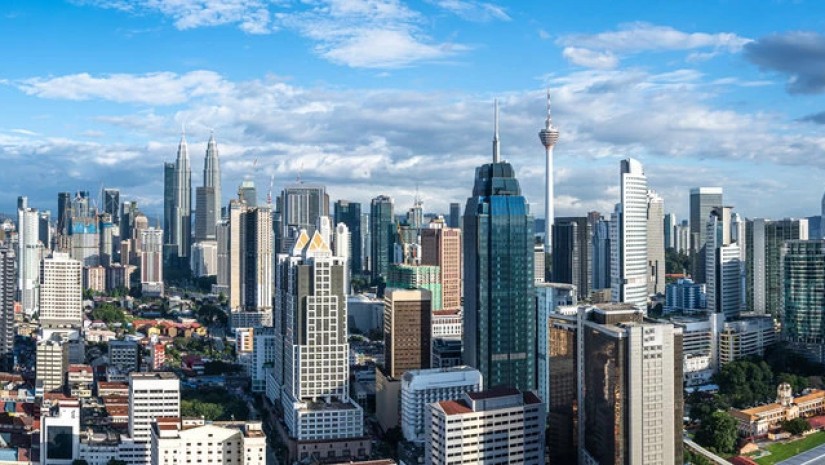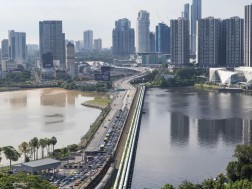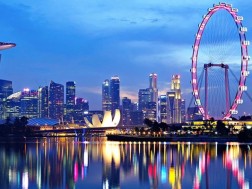Investors old enough might remember or recall the CNN adverts of “ Malaysia Truly Asia”.
The FTSE Bursa Malaysia KLCI index trades around the 1612 levels with a valuation of P/E 14.53 x and a 12-month dividend yield 3.97%. the United States listed iShares MSCI Malaysia ETF (EWM) closed at USD 23.68.
The global financial market speaks a language and smart money should pay attention.
The MYR Malaysian ringgit is set for its longest winning streak in 14 years on optimism surrounding Malaysia’s economy and foreign fund inflows.
After three years of losses, the ringgit is outperforming its Asian peers in 2024 as the government drove policies to boost foreign investments and began rolling back subsidies to narrow the budget deficit. That’s helped to lure back interest from global funds, who poured $112 million into local stocks this year.
The Malaysia equity market was out of favour for many years and has underperformed other Asian and global markets. According to Bloomberg data, the New York listed Malaysia country ETF EMW has underperformed global equities MSCI world ETF URTH by -78% over the last 5 years.
Year-to-date 2024 however Malaysia has started to outperform global equities by +1.58%.
Malaysia’s economic recovery is also gathering pace, with second-quarter gross domestic product beating all estimates, supported by improving exports. 2024 full year GDP forecast for Malaysia is 4.5% for this year and 4.6% for both 2025 and 2026.
Malaysia’s finance ministry believes the economic growth projections of four to five percent in 2024 can be achieved and may even go to a higher level.
The "Malaysia, Truly Asia" campaign was launched by the Malaysian Tourism Promotion Board (Tourism Malaysia) in 1999. The campaign aimed to promote Malaysia as a premier travel destination by highlighting its unique blend of Asian cultures, including Malay, Chinese, Indian, and various indigenous traditions. This slogan emphasized the country's multicultural heritage, diverse attractions, and natural beauty, positioning Malaysia as a microcosm of Asia and appealing to international tourists seeking a comprehensive Asian experience in one destination.
"Malaysia, Truly Asia" became a highly recognizable and successful tourism slogan, contributing significantly to the growth of Malaysia's tourism industry.
The question for global investors today is whether Malaysian assets or investments could add to the growth of their investment portfolios.
Situated in the heart of Southeast Asia, Malaysia serves as a gateway to the ASEAN market, which has a population of over 650 million people. Its proximity to major Asian markets like China, India, and Indonesia enhances trade and investment opportunities. Malaysia has a diverse and resilient economy, with strong sectors in manufacturing, services, and natural resources. The country has maintained steady economic growth over the years, supported by sound macroeconomic policies and a relative stable political environment.
The Malaysian government offers various incentives to attract foreign investment, including tax holidays, grants, and special economic zones. The Malaysian Investment Development Authority (MIDA) provides support and facilitation for investors.
The Malaysia equity market was out of favour for many years and has underperformed other Asian and global markets. According to Bloomberg data, the New York listed Malaysia country ETF EMW has underperformed global equities MSCI world ETF URTH by -78% over the last 5 years.
Year-to-date 2024 however Malaysia has started to outperform global equities by +1.58%.
MSCI Malaysia may widen its 1H outperformance in 2H vs. the MSCI Emerging Markets index, fuelled by low valuations, modest expectations, accommodative policy and the seeds of a positive, bottom-up change for financials. Malaysia's sector composition and status as a more-developed market make it more defensive than peers
Despite a strong rebound from March lows, Malaysian equities still trade at low price-to-book multiples. The index fell 25.2% from 2020 highs to its nadir but has recovered by 28.2% since. It still trades at 1.6x book, more than 1.1 standard deviations below the average since 1999. Historically, when a standard deviation of minus one has been broken, the index has bounced back 27% in the subsequent 12 months, suggesting the current rally might have more room to run.
Additionally, relative to the MSCI Emerging Markets index, Malaysia trades at a 6% discount, well off the average 15% premium since 1999. While a premium of that size may not be justified, the opportunity exists for the discount to disappear in 2H.
Malaysian equities are likely to face growth headwinds in 2H against already low expectations. Median EPS growth for the country is expected to be just 4.5% in the year ahead, vs. 12.9% for emerging markets. Expectations are particularly low in discretionary (down 22.4%) and financials (4.1%), the largest sector in the index. Conversely, health care (plus 63.7%), industrials (12.5%) and staples (11%) could lead EPS growth over the same time frame.
Additionally, fiscal-year EPS estimate revisions haven't been very supportive over the past three months, with all sectors except health care (up 76.9%) facing steep analyst cuts. Discretionary (minus 46.1%), materials (32.1%), energy (22.8%) have had the worst cuts over the same period.
Johor Bahru, the capital of the Malaysian state of Johor, has been experiencing significant growth and development in recent years. Johor Bahru's strategic location near Singapore makes it an attractive destination for both businesses and residents. The city benefits from economic spillover effects, with many Singaporeans investing in real estate, shopping, and dining in Johor Bahru due to the favourable exchange rate and lower cost of living. Major infrastructure projects, including the Rapid Transit System (RTS) link between Johor Bahru and Singapore and the expansion of the Senai International Airport, enhance connectivity and attract investments. Improved transportation networks facilitate easier movement of people and goods, boosting economic activities.
The Iskandar Malaysia economic corridor, a massive development project, aims to transform Johor Bahru into a regional hub for business, education, healthcare, and tourism. Significant investments in residential, commercial, and industrial projects within Iskandar Malaysia are driving the city's growth. Johor Bahru's economy is diversifying beyond traditional sectors like manufacturing. There is growth in sectors such as tourism, education, healthcare, and services. The presence of international schools, hospitals, and shopping malls adds to the city's attractiveness.
The Malaysian government and the Johor state government have implemented policies and incentives to attract foreign investment and promote economic development. These initiatives include tax incentives, grants, and support for businesses.
Malaysia equities offer a compelling investment case at current valuations due to the country’s economic growth, sectoral strengths, strategic location, and supportive government policies. However, investors should also be mindful of potential risks such as political instability and global economic dependencies.
Investors are encouraged to conduct thorough due diligence, seek professional advice, and consider their risk tolerance before making any investment decision in Malaysia or in a portfolio context. Past performance is not indicative of future results, and investments can lose value. This article is for informational purposes only and does not constitute investment advice or an endorsement of any investment strategy or single security.
Rainer Michael Preiss is Partner & Portfolio Strategist at Das Family Office in Singapore























